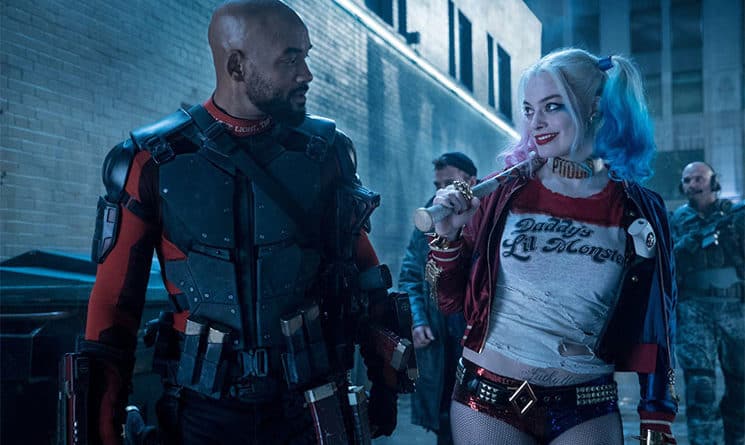There are some foundational problems with The DC Extended Cinematic Universe. The deepest may stem from a core proposition that executive producer and general show-runner Zack Snyder extrapolated from his 2009 adaptation of “Watchmen” and embedded into the first two films in Warner Brothers’ latest cycle of DC superhero flicks, “Man of Steel” and “Batman v Superman”: that there is no axiological difference between heroes and villains.
Originally written by mad wizard and thought-mafia godfather Alan Moore, “Watchmen” very persuasively argued pretty much all superhero conventions down to this single, dreadful point of existentiality. There’s some credibility to the theory that, after decades of devising better ways to express the conflicts of two-dimensional combatants in brightly colored masks and tights, Moore injected this crippling insight as a virus intended to kill off the entire genre.
It may be working. But it’s taking an awful lot longer than Moore had probably hoped. Snyder’s devotion to replicating the image of Moore’s creation with “Watchmen” seems to have blinded him completely to its underlining implication. And Warner Brothers’ unfortunate adoption of Snyder as the banner-man to carry his befuddled interpretation through to the larger DC film franchise has poisoned the well from the get-go. It’s a fundamental conflict, making movies about heroes specifically to express that there are no heroes.
The execs at Warner Brothers appear to be slowly, excruciatingly realizing this, but to little avail for folks seeking entertaining stories that might help define and confirm our own sense of good and bad. After both of Snyder’s DC movies were ravaged by critics, their newest effort seems to be at least an attempt to correct course — to infuse some levity into Snyder’s smoldering crater of crushing hopelessness, and just “give ’em what they want.”
Implicit in that objective, however, is the notion that the Hollywood execs have determined who their target audience is and know what that audience wants. And that’s where “Suicide Squad” gets just plain insulting.
“Suicide Squad” pivots from contempt for comic book movie conventions to a condemnation of comic book movie audiences themselves.
Warner Brothers executives apparently have retreated from any level of originality and assumed their audience wants rubber-stamp replications of insipid plots and set pieces we’ve seen a hundred times before. They imagine we’re incapable of understanding a character unless it’s reduced, literally, to a list of stats on screen. They suspect we need story points to be reinforced by familiar pop songs with obvious lyrics describing precisely what we’re seeing on screen. They’re betting we’ll be inspired by the ability to operate a firearm or a baseball bat as superpowers. They expect we’ll misconstrue gratuitously weaponized sexuality for female empowerment. They think we need to be reminded, in case we missed the entire premise of the thing we bought tickets for, that the heroes of this incoherent sideshow are supposed to be bad guys — a point repeated, out loud, three or four times, specifically with the words, “We’re bad guys.”
In short, the execs think we’re stupid. They seem to hope that we’ll be so distracted by mindless hailing gunfire and exploding helicopters and sparkly sequined hot pants that we won’t notice their mad desperation to untie the noose they’ve so deliberately slipped around the neck of their narrative.
With a clear goal of pounding some degree of humor out of the grim and airless world they’ve so misguidedly grown from the heart of Alan Moore’s despair, “Suicide Squad” pivots from contempt for comic book movie conventions to a condemnation of comic book movie audiences themselves.
It has been proven elsewhere that smart and fun don’t need be mutually exclusive. But as the reactionary committees in charge over at Warner Bothers continue to push the pendulum from one end of the spectrum to the other, we can presumably expect these beatings to continue, as they say, till morale improves. They may regret the amount of energy they’ve spent trying to convince us that there’s no difference between good and bad, but they’ll probably learn to lament even more the fact that somewhere between their condescending judgment of our capacity for non-linear thought and Alan Moore’s grave intellectualizing, we can indeed tell the difference. And this here? This isn’t good.

